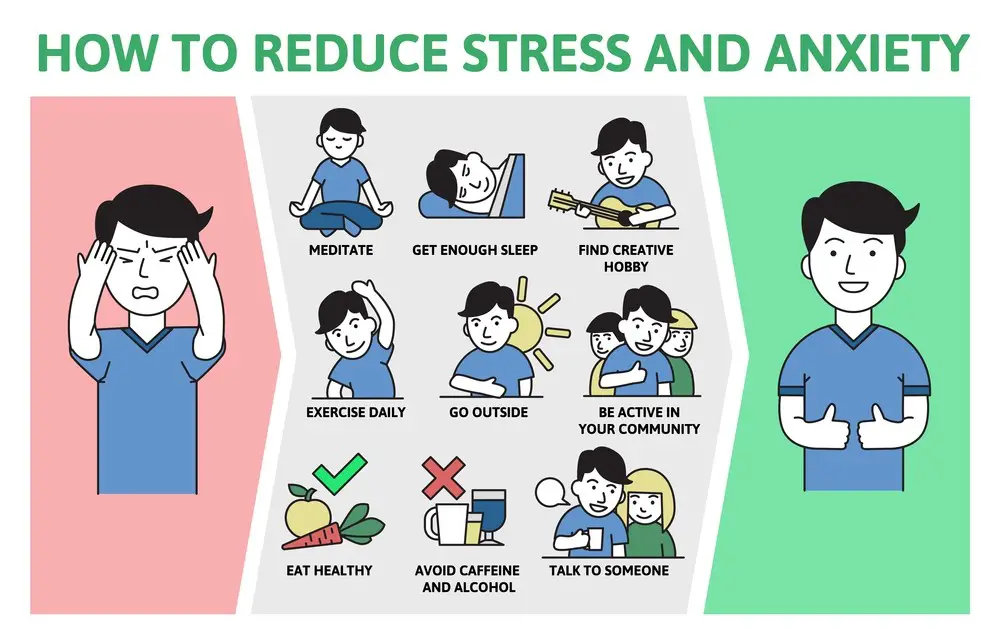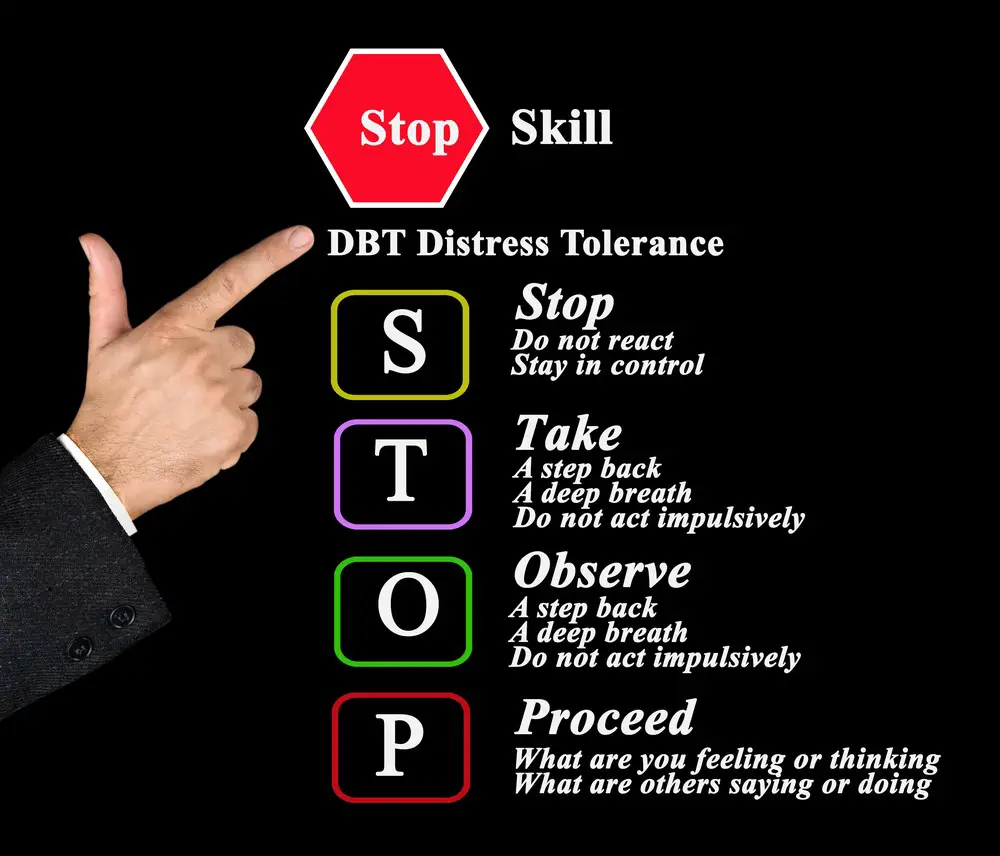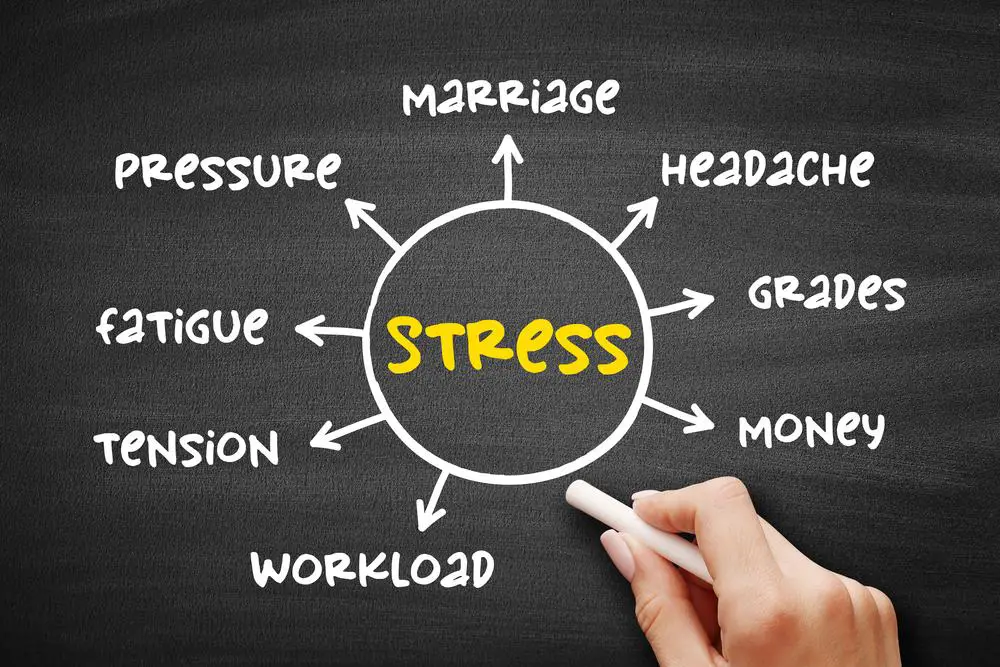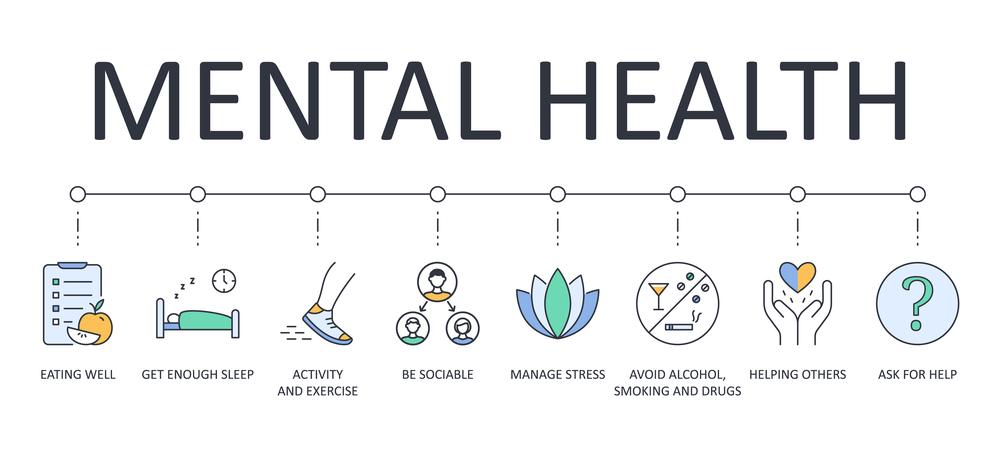As a BetterHelp affiliate, we receive compensation from BetterHelp if you purchase products or services through the links provided
Feeling dizzy can turn a good day bad quickly. Vestibular exercises have been shown to improve balance and reduce dizziness. This article will guide you through several techniques to manage stress-induced dizziness effectively.
Relaxation Techniques
 Feeling lightheaded or dizzy is a common symptom of anxiety and chronic stress. When the body is stressed, tension accumulates in the upper back, neck, and shoulders, putting pressure on the inner ear and disrupting balance. Relaxation techniques help release this tension to stop dizziness.
Feeling lightheaded or dizzy is a common symptom of anxiety and chronic stress. When the body is stressed, tension accumulates in the upper back, neck, and shoulders, putting pressure on the inner ear and disrupting balance. Relaxation techniques help release this tension to stop dizziness.
Deep breathing, meditation, and yoga calm the body’s stress response. Activities like gentle neck stretches also alleviate muscle tightness, causing vertigo. Consistently practice these techniques to train your nervous system into a parasympathetic “rest and digest” state versus the adrenaline-fueled “fight or flight.”
Other lifestyle habits reinforce relaxation’s long-term effects:
- Get at least 7 hours of sleep nightly so the brain restores homeostasis disrupted by stress.
- Eat foods with magnesium and B vitamins, which nerves need to function properly.
- Stay hydrated since dehydration causes dizziness itself.
- Reduce stimulating substances like alcohol, caffeine, and tobacco.
- Supplements like ginger and ginkgo biloba also minimize vertigo specifically.
Most crucially, address the root sources of your anxiety. External stressors like a heavy workload, financial worries, and relationship conflicts heighten internal tension.
Tackle these through better time management, professional help, or improved communication skills. Learning to manage stressors and relax the mind and body will lead to marked improvements in dizziness. Regaining balance starts from within.
Breathing Exercises
 Feeling off-balance or dizzy is a common experience when we are stressed and anxious.
Feeling off-balance or dizzy is a common experience when we are stressed and anxious.
Dizziness occurs because stress creates tension in the neck, shoulders, and upper back, putting pressure on the inner ear, which controls equilibrium. Practicing breathing exercises helps relieve this tension, calms the stress response, and stops anxiety-caused dizziness.
Techniques like deep belly, alternate nostril, and exhale lengthening stimulate the parasympathetic nervous system to signal relaxation throughout the whole body, including crunched muscles causing vertigo.
Breathing exercises also ensure you take in adequate oxygen so cells function optimally.
Shallow chest breathing triggered by the adrenaline of chronic stress deprives the brain and ears of oxygen needed for clear signals about balance. Deep conscious inhales deliver more oxygen, allowing nerves and organs to communicate properly.
For best effects, make breathing exercises part of your daily routine. Combine techniques with other lifestyle factors that reduce underlying anxiety and reinforce balance, like yoga, meditation, proper sleep, nutrition, and hydration.
Address external stressors causing anxiety through better time and priority management, too. With regular breathwork practice and overall stress-reduction habits, dizziness will subside, making you feel more grounded. Making breathing exercises a lifelong practice trains your body to respond to stressors with equilibrium instead of dizzying anxiety.
Managing Stress Levels
 When stressed, tension accumulates in our necks, jaws, and shoulders. This strains the inner ear governing balance, leading to vertigo.
When stressed, tension accumulates in our necks, jaws, and shoulders. This strains the inner ear governing balance, leading to vertigo.
To stop dizziness, it’s crucial we actively manage daily stress levels. Relaxation practices like meditation, yoga, and deep breathing elicit the “rest and digest” nervous system response to release muscle tightness. Getting enough sleep gives frazzled neurons time to heal so inner ear signals remain accurate. Eating nutritious foods with magnesium and B vitamins supports nerve health, too.
We must also examine and reduce commitments causing excessive tension. Determine priority tasks and delegate or eliminate unnecessary ones. Schedule adequate break times to restore equilibrium. Say no to nonessentials pulling you in too many directions.
While life contains some inherent stress, dizzy spells often arise from overwhelming demands that accumulate past our limits. By consciously managing lifestyle and obligations to maintain low-stress levels, we prevent vertigo at its roots.
Our equilibrium relies on a balanced nervous system, nurtured through healthy daily habits and reasonable responsibilities. Regaining physical and mental balance starts with managing stress.
Identifying Triggers
 Keeping a journal can be a game changer in pinpointing what triggers your dizziness. Note down instances when you feel dizzy, alongside details like what you were doing, eating, or feeling emotionally at that time.
Keeping a journal can be a game changer in pinpointing what triggers your dizziness. Note down instances when you feel dizzy, alongside details like what you were doing, eating, or feeling emotionally at that time.
This diary becomes crucial for identifying patterns and specific stressors that set off your dizziness. It’s not just about tracking physical activities but also understanding how anxiety, panic attacks, or certain foods may play a role.
Discussing these findings with a healthcare professional can significantly enhance the management of your symptoms. They might suggest vestibular rehabilitation exercises tailored to address balance issues linked to identified triggers.
This proactive approach allows for more personalized treatment plans, incorporating techniques like balance therapy and relaxation exercises designed to mitigate the impact of these triggers on your life.
Lifestyle Changes
 Making fundamental lifestyle changes helps relax this tension so equilibrium can be regained. Regular exercise like yoga releases upper body tightness while stimulating the parasympathetic nervous system for an overall calming effect. Getting 7-9 hours of quality sleep nightly allows the brain and nerves to heal from anxiety’s disruptive effects. Eating nutritious whole foods fuels the body with magnesium and B vitamins that nerves require to function smoothly.
Making fundamental lifestyle changes helps relax this tension so equilibrium can be regained. Regular exercise like yoga releases upper body tightness while stimulating the parasympathetic nervous system for an overall calming effect. Getting 7-9 hours of quality sleep nightly allows the brain and nerves to heal from anxiety’s disruptive effects. Eating nutritious whole foods fuels the body with magnesium and B vitamins that nerves require to function smoothly.
Lifestyle changes also entail examining energy drains. Determine key stress triggers like a heavy workload or financial problems, then minimize exposure. Say no to nonessential obligations. Schedule downtime each day for genuine stress relief.
Dizziness serves as a warning that anxiety has accumulated beyond healthy levels, straining vital systems. Implementing lifestyle changes to reduce tension, nourish the body’s needs, and manage external demands will allow the inner balance to be steadily regained. With a commitment to daily health-supporting habits, equilibrium can prevail.
Seeking Professional Help
 When dizzy spells persist despite lifestyle changes, seeking professional support can help uncover the root causes of anxiety disrupting the balance. Counselors teach healthy coping strategies to manage identifiable stress triggers like work conflicts or financial strain.
When dizzy spells persist despite lifestyle changes, seeking professional support can help uncover the root causes of anxiety disrupting the balance. Counselors teach healthy coping strategies to manage identifiable stress triggers like work conflicts or financial strain.
Psychiatrists may prescribe medications if anxiety has a neurological basis.
Physical therapists specialize in releasing muscle tension through massage, acupressure, gentle stretches, and exercises that improve circulation.
Nutritionists can advise on supplements and diet changes that reduce inflammation while nourishing nerves and brain areas that communicate signals about equilibrium.
However, not all dizziness related to stress has an apparent external culprit. Sometimes, anxiety builds inexplicably over years of ignoring the body’s pleas for rest and recovery. Seeking talk therapy can help uncover subconscious fears or past traumas manifesting physically as vertigo.
By honestly confronting deep-seated sources of stress with professional help, you can finally address and heal them.
Remember, recurring dizziness signals that excessive anxiety is hampering vital body systems. Seeking compassionate support tailored to your unique needs is key to stopping disruptive stress and restoring balance from within.
Natural Remedies
Dizziness triggered by stress and anxiety responds well to natural remedies that relax the body without side effects. Herbal teas like chamomile and lavender have mild sedative action to reduce racing thoughts and muscle tension straining the inner ear.
Essential oils like clary sage and frankincense also turn on calming nervous system responses when inhaled. Supplements like magnesium, ginger, and ginkgo biloba help minimize vertigo specifically by supporting circulation and neurological function.
Nature provides us with additional remedies for anxiety relief. Walking barefoot on the grass outdoors discharges stress while boosting mood-lifting serotonin and moving rhythmic activities like yoga, Tai Chi exercises, or even swimming stretches tight muscles while inducing meditative states of calm. Deep breathing outside amid trees and sunlight restores oxygen flow to agitated nerves.
When feeling off-balance chronically, make lifestyle changes that incorporate natural anxiety soothers daily. Herbal support, essential oils, targeted nutrients, gentle outdoor movement, and “earthing” maintain equilibrium by keeping you in a parasympathetic-dominant state resistant to stress. Nature wants to steady you with medicinal offerings – generously accept them.
Self-care Practices
 Implementing daily self-care practices releases this tension so equilibrium can be regained. Yoga, meditation, and deep breathing elicit the body’s relaxation response to calm the nervous system. Getting a massage helps muscles unwind while boosting mood-lifting serotonin.
Implementing daily self-care practices releases this tension so equilibrium can be regained. Yoga, meditation, and deep breathing elicit the body’s relaxation response to calm the nervous system. Getting a massage helps muscles unwind while boosting mood-lifting serotonin.
Good sleep hygiene allows frazzled neurons to heal so signals about balance remain accurate. Eating nutritious whole foods provides the nutrients nerves need to communicate properly.
Self-care also means examining energy drains that contribute to anxiety, like overcommitting at work or stretched finances. Then, minimize exposure to what you reasonably can. Add more joy sources alongside obligations, too.
Dizziness alerts us that stress has strained vital systems past capacity. Regular self-care trains your mind and body to handle demands with poise while nourishing you holistically. Carve out time daily to destress, move mindfully, sleep, eat, and connect with loved ones. With a commitment to caring for both inner needs and outer pressures, balance steadily returns.
Conclusion
Finding balance and relief from stress-induced dizziness starts with implementing the discussed techniques. From relaxation exercises to managing your daily lifestyle, these strategies prove practical and easy to integrate into your routine.
Have you considered how simple changes can dramatically ease your dizzy spells? Remember, regaining inner ear balance involves small, consistent steps toward a healthier lifestyle and stress management.
Let this information empower you to take control of your well-being today.
- Breaking the Silence: Why Men’s Mental Health Matters More Than Ever - April 15, 2025
- How to Transform a Home’s Patio Space into a Relaxing Space - March 23, 2025
- 5 Strategies to Use a Cell Phone to Help Manage Your Stress - March 23, 2025
This site contains affiliate links to products. We will receive a commission for purchases made through these links.



